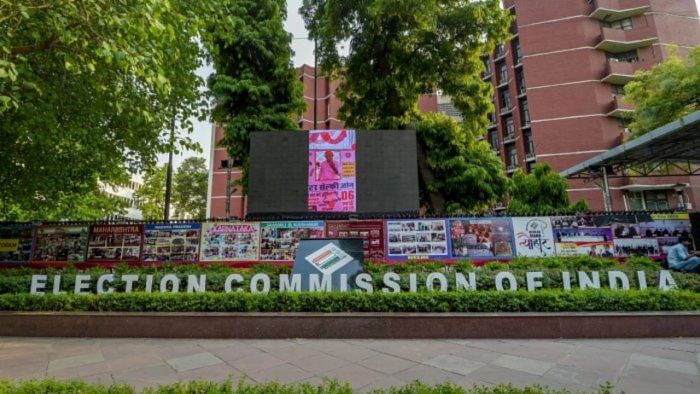
With the Election Commission of India (ECI) anouncing the dates for the Legislative Assembly elections for the states of Himachal Pradesh and Gujarat, the model code of conduct has come into force. All political leaders and parties associated with the electoral process are bound by this code.
But, what is the model code of conduct (MCC)? What does it entail? Why does it matter?
Here's all you need to know:
The MCC is a set of rules put in force by the ECI to guarantee free and fair elections. It is a set of rules that have evolved with political parties consenting to abide by the principles embodied in said code. It also binds them to respect and observe it in its letter and spirit.
When and where is the MCC applicable?
The MCC is valid from the date of announcement of the schedule of an election, either to the Parliament, state Assemblies or districts, and continues through the election in question.
In the case of Assembly elections, the MCC is valid throughout the poll-bound state. In the case of Parliamentary or general elections, the MCC is valid throughout the country.
In the case of by-elections to districts, the MCC is valid throughout the district where the election is to take place.
Where does the Election Commission come into the equation?
The ECI ensures the code's observance by political parties including ruling parties at the Centre and in the states. The ECI ensures free, fair and peaceful elections to the Parliament and the State Legislatures.
It also ensures that official machinery for electoral purposes is not misused. Further, it ensures that electoral offences, malpractices, and corrupt practices, such as impersonation, bribing and inducement of voters, as well as threats to and intimidation of voters, are prevented.
What restrictions do the governments have during the enforcement of the MCC?
1. Ministers cannot combine official visits with electioneering work. They can also not make use of official machinery or personnel during electioneering.
2. No transport including official aircraft, vehicles, etc can be used for the furtherance of the interest of any party or a candidate.
3. A total ban on transfer and posting of all officers/officials directly or indirectly connected with the conduct of the election is put in effect. If any transfer or posting of an officer is considered necessary, prior approval of the ECI must be obtained.
4. No minister, whether of Union or state, can summon any election-related officer of the constituency or the state for any official discussions anywhere.
5. If a Union minister is travelling out of Delhi on purely official business, which cannot be avoided in the public interest, then a letter certifying this must be sent from the concerned Secretary of the Ministry/Department to the Chief Secretary of the concerned state, along with a copy to the ECI.
6. Advertisements regarding the achievements of the party at the cost of public exchequer in print and electronic media and the misuse of official mass media are prohibited.
7. If an order has been issued by the state or the Union government with respect to any scheme but no work has begun till the MCC is in force, then no work shall be started in that respect. However, if work has actually started in the field, that can be continued.
8. No fresh release of funds under MPs/MLAs/MLCs' Local Area Development Fund of any scheme can be made in any area where the election is in progress till the completion of the election.
9. Financial institutions funded partially or wholly by the government shall not take recourse to write off loans advanced to any individual, company, firm, etc. Also, the financial limits of such institutions, while granting or extending loans, should not be enhanced by issuing of loans indiscriminately to beneficiaries.